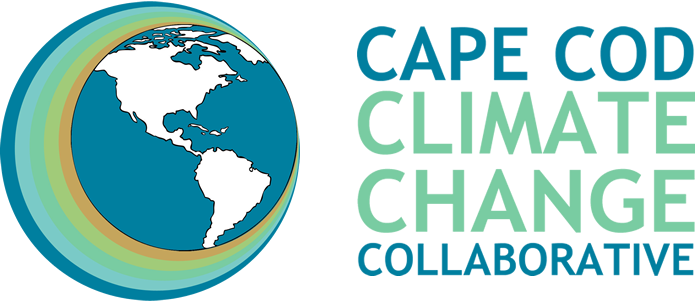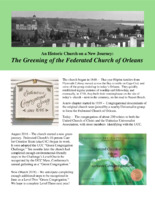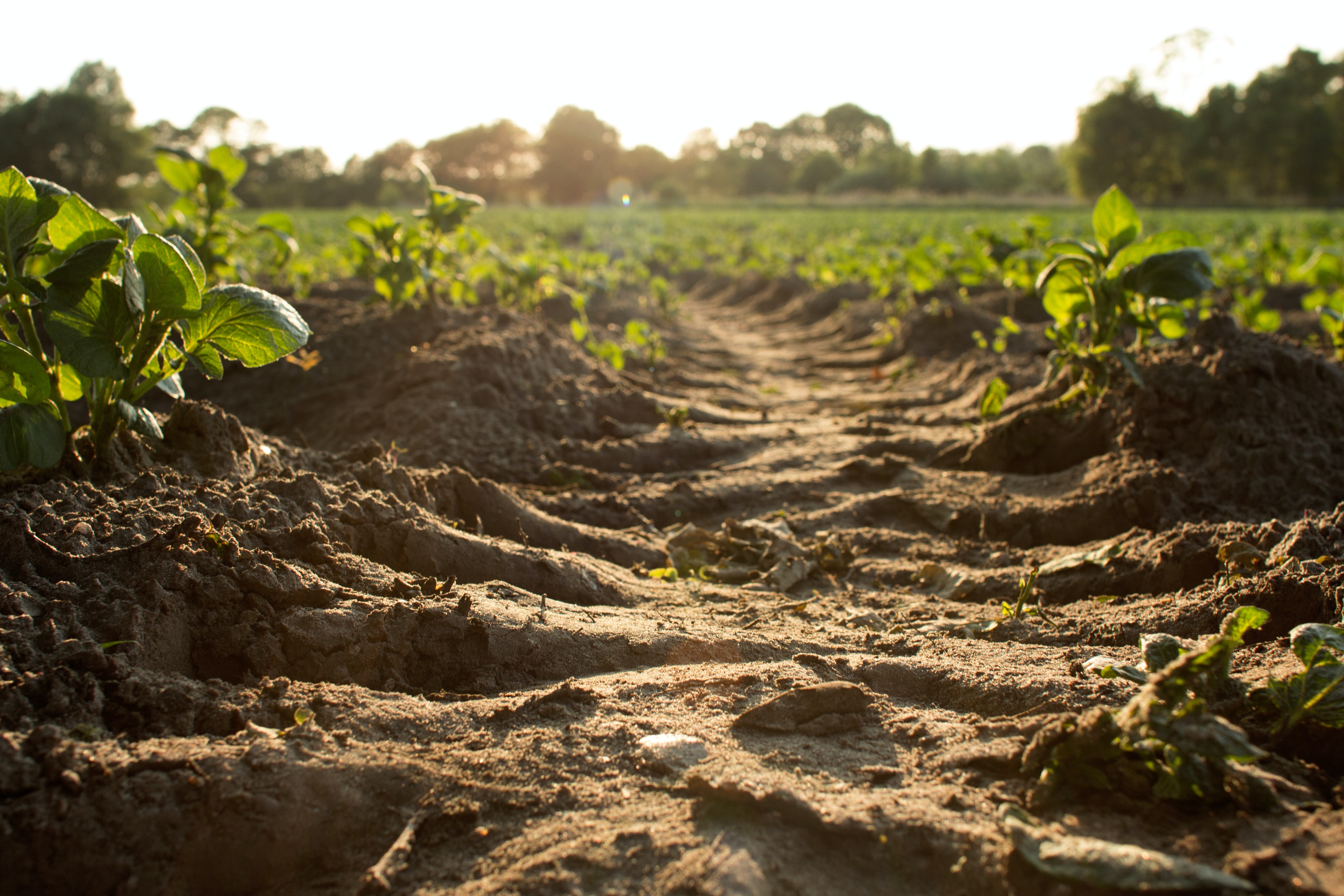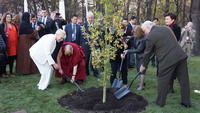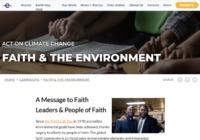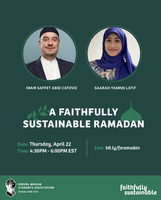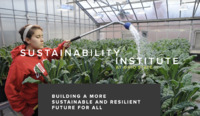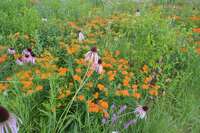Search
88 items
-
The Cape Cod Climate Change Collaborative
Established in 2016, the Cape Cod Climate Change Collaborative is a coalition of Cape and Islands-based organizations, businesses and citizens whose mission is to unite available knowledge, resources, talent and tools to mitigate climate change impacts on Cape Cod, reduce greenhouse gas emissions, and work toward achieving “net zero”-based goals for the Cape & Islands. We seek to create conditions to foster innovative, feasible, cross-sector solutions to the climate crisis.
Board members include community leaders from across the region representing organizations such as the Association to Preserve Cape Cod, Cape Air, Cape Light Compact, Center for Coastal Studies, Friends of Pleasant Bay, Outer Cape Energize, Woods Hole Research Center, and numerous faith, educational, non-profit and business entities. -
The Greening of the Federated Church of Orleans
The church began in 1646 – That year Pilgrim families from Plymouth Colony moved across the Bay to settle on Cape Cod, and some of the group ended up in today’s Orleans. They quickly established regular patterns of worship and fellowship, and eventually, in 1718, they built their meetinghouse on the site of today’s church – next to the cemetery, on the road to Nauset Beach.
August 2016 – The church started a new green journey. Federated Church's 10-person Care for Creation Team (aka C4C) began its work. It soon adopted the UCC “Green Congregation Challenge.” Ten months later the church had completed enough environmental-friendly steps in the Challenge’s Level One to be recognized by the UCC Mass. Conference's annual gathering as a “Green Congregation.”
Now (March 2018) – We anticipate completing enough additional steps to be recognized in June as a Level Two “Green Congregation.” We hope to complete Level Three next year! -
Books on Religion and Climate Change
This list includes 37 titles (and counting) that examine climate change and our connection to the environment from multifaceted religious perspectives.
This could serve as an inspiration for anyone who's interested in learning more about the philosophy of environmentalism.
The list updates as new books are being published. -
A Bahá'í Compilation on Soil and Earth
This compilation gathers a selection of references to soil, earth and minerals in the Bahá'í Writings, including the ways these are referred to both symbolically and literally.
Contents:
Mineral Kingdom
Agriculture
Metaphorical Uses
Humility
Earth as Tomb
Rain on Soil
Fertile versus Barren
Cultivation - Divine Education -
Interfaith Rainforest Initiative (IRI) Campaign Videos
The Interfaith Rainforest Initiative (IRI) creates artistic and well-produced videos that accompany their programs on climate change education and awareness-raising in branch offices around the world.
These videos are great resources for those looking for multimedia inspirations that amplify sustainability communications efforts. -
Profile: EquaSion (Equality, Spirituality, Inclusion)
EquaSion, formerly known as the Bridges of Faith Trialogue, is a non-partisan civic organization founded upon interfaith dialogue that works to develop educational and community service programming to foster greater understanding, respect, compassion, inclusion, and engagement for all people and faith communities in Greater Cincinnati and beyond. -
Sustainable Consumption Research and Action Initiative (SCORAI)
The Sustainable Consumption Research and Action Initiative (SCORAI) is a knowledge network of professionals working at the interface of material consumption, human well-being, and technological and cultural change. We aim to foster a transition beyond the currently dominant consumer society. SCORAI provides a forum for scholars and practitioners striving to understand the drivers of the consumerist economy in affluent technological societies; to formulate and analyze options for post-consumerist lifestyles, social institutions, and economic systems; and to provide the knowledge for emergent grassroots innovations, social movements, and public policies. -
The Orthodox Fellowship of the Transfiguration
The Orthodox Fellowship of the Transfiguration is based out of Santa Rosa, California, and is comprised of a dedicated group of Orthodox Christians who provide an Orthodox response to the environmental crisis on Earth. Although this group is based in the United States, its messages are heard around the world. Since the beginning of their organization, they have created lectures, conferences, and a newsletter. This group offers programs and resources that allow readers to engage themselves in conservation efforts with an Orthodox Christian philosophy. -
Mid-Atlantic Coast
Ducks Unlimited is a conservation organization that primary purpose is to restore and protect native duck populations. The article about the MId-Atlantic Coast project is one of Ducks Umlimited biggest ongoing projects currently. The project is to restore and protect the wetlands from Chesapeake Bay to Long Island. The wetlands are a vital location for ducks because of the food, shelter, and safety that they provide. Ducks Unlimited is currently restoring damaged areas and working with local governments to legally protect these areas. Further Ducks Unlimited is working with locals on what they can do to protect and restore the wetlands. The article talks about the focuses of the project along with the partners. -
Religion and Environmental Values in America
"Religion and Environmental Values in America explores the emerging and increasingly important topic of religion and sustainability, with particular attention to first understanding what it takes, philosophically and practically, to overcome polarizing debates about such topics and to understand environmental issues at their roots. The book then examines a range of case studies highlighting key areas of faith-based sustainability solutions." -
Querida Amazonia
This post-synodal exhortation by Pope Francis draws and continues from Laudato Si'. It specifically addresses the region of the Amazon and Pope Francis' ideals for supporting its environment. In summation, he says, "I dream of an Amazon region that fights for the rights of the poor, the original peoples and the least of our brothers and sisters, where their voices can be heard and their dignity advanced.
I dream of an Amazon region that can preserve its distinctive cultural riches, where the beauty of our humanity shines forth in so many varied ways.
I dream of an Amazon region that can jealously preserve its overwhelming natural beauty and the superabundant life teeming in its rivers and forests.
I dream of Christian communities capable of generous commitment, incarnate in the Amazon region, and giving the Church new faces with Amazonian features." -
Querida Amazonia Beloved Amazon Study Guide on Select Themes
"This reflection/discussion guide, for use with Pope Francis’ apostolic exhortation, Querida
Amazonia [Beloved Amazon], can help individuals and small groups explore and dialogue with
aspects of this important document related to listening to “the cry of the poor,” the rights of
indigenous persons, solidarity, and action to care for God’s creation. It does not cover all themes in
the apostolic exhortation. The guide includes a template for small group discussion, as well as
questions for either individual or small group reflection on particular themes in the document." -
Practical Steps Towards Protection of the Environment
"These days the environment- the source of life for all beings in the world including Tibet, the Land of Snows- is undergoing extensive degeneration. At this time it is extremely important that every human being, according to his or her ability, consistently puts effort into ensuring the conservation and protection of this planet's environment and its inhabitants." -
Hindu Faith Statement on the Environment
This statement consists of three sections reflecting the major strands of Hindu thought: Sustaining the Balance, Sacrifice and Protection, and Breaking the Family. It was compiled as a statement of the stance of the Hindu faith on environmental issues and how to approach nature. -
Earth Day: Faith & the Environment
"Since the first Earth Day in 1970, incredible environmental goals have been achieved, thanks largely to efforts by people of faith. The global faith community is a critical voice in overcoming obstacles and integrating environmental issues into political, social and economic agendas...
Below are EARTHDAY.ORG’s Invest in Our Planet campaigns, as well as resources linking environmental stewardship and faith. We always strive to update and improve our resources. If you know of environmental or faith-based resources, email us at partnerships@earthday.org." -
"Tell the EPA"
This email was sent out on the Interfaith Power and Light newletter asking for support in limiting coal ash pollution. It asks readers to reach out to the EPA to advocate in favor of stricter guidelines for coal burning power plants to clean up the pollution that is produced. -
A Faithfully Sustainable Ramadan
"Join us this Thursday April 22nd (#EarthDay ?) as we collaborate with @drexelmsa to discuss how we can actively practice a Sustainable Ramadan that is in line with the Prophetic Sunnah and the Quran, both within our home and with our communities! ?? The discussion will be led by community leaders and sustainability experts Imam Saffet Catovic and Sister Saarah Latif @saarahlatif. ?" -
Sustainability Institute at Ohio State
"The Sustainability Institute collaborates with academic and operations units across the university to advance sustainability and resilience scholarship and activities. We aim to establish Ohio State as a leader in sustainability research and applications; educate and empower students; accelerate campus sustainability and living lab opportunities; grow resources to support these efforts; and catalyze a culture of sustainability." -
Planet vs. Plastics
"For Earth Day 2024, EARTHDAY.ORG is unwavering in our commitment to end plastics for the sake of human and planetary health, demanding a 60% reduction in the production of ALL plastics by 2040." -
SEEDS Sustainability Library
"The SEEDS Sustainability Library is a comprehensive repository of applied student research and knowledge that includes a diverse range of interdisciplinary, student-led research projects that have used the Campus as a Living Lab. These open access applied research reports contribute to a body of knowledge, learning and action to ignite sustainability ideas, policies and practices, enabling the broader community to learn, apply and build on previous research." -
President Carter’s Environmental Roots
This chapter from the student-written book “Emerging Perspectives on Religion and Environmental Values in America” explores the environmental history and values of former President Carter. It discusses how Carter's religion impacted his environmental views and how he acted on those values during his career. Below is the first paragraph of the chapter to introduce the discussion.
"Former President Carter, the peanut farmer turned president, has a long and well-known record. He’s been everything from a farmer, navy man, state senator, then Governor of Georgia, President of the United States, Noble Peace Prize winner, and bible study teacher. What’s not as recognized as his noble peace prize winning post-presidency, or his political career, is his strong environmental policies. In his 4 years in the White House, President Carter did more for the environment than many presidents before and after him. He faced many challenges throughout his presidency, most notably the hostage crisis, and the energy crisis. These major challenges in his tenure have hogged much of the attention of his presidency, and people seem to forget his message of good environmental attitudes. The question is, where did his environmental attitudes come from?" -
An Unfamiliar Outlook: The Partnership of Ecofeminism and Daoism
This chapter from the student-written book “Emerging Perspectives on Religion and Environmental Values in America” explores the interactions between Daoism and environmentalism, feminism and environmentalism, and Daoism and feminism. The history of these philosophies are explored and the author includes her own experiences and thoughts to help discuss the perspective. Below is the first paragraph of the chapter to introduce the discussion.
"It’s not clear how many Daoist ecofeminists are in the world, but I think I may be one of them. Though I was raised as a Baptist Christian, I have found the insights of Daoism, the predominant religion of the homeland of my family, and ecofeminism, the perspective that centers women’s relationship to nature, as complementary to my Christian faith and concern for the environment. I have been able to incorporate this philosophy into my life and found that they are interrelated. My interest in these thoughts was partly sparked by applying to the China Program summer internship with Environmental Defense Fund (EDF), which piqued my interest in learning more about Chinese cultural beliefs. Daoism has played a huge role as a philosophy within Chinese culture for thousands of years, and I am interested in ecofeminism because it is a topic that strongly resonates with me being a woman and its relation to the earth. As someone who grew up having a spiritual and personal relationship with the natural world, I find that many of my values align with the Daoist ecofeminist perspective." -
Earth Friendly Habits: Putting Your Catholic Faith into Action
"We all want to have clean air and water. We all want to leave a healthy planet for our children and grandchildren but the challenges we face can feel overwhelming. This booklet will guide us in the process of creating earth friendly habits. Every week it will feature a quote from a saint, Pope Francis, or Laudato Si’, the encyclical written by Pope Francis, along with a simple idea to consider implementing. Often, there will be information about why we need these changes. Some ideas will be familiar but are worth revisiting. Some will be new. The suggestions might appear small but once enough people act in their own lives, it will start a chain reaction that can only end in a healthier planet Earth. Many of the ideas cost nothing. Some require a small initial investment but will save money in the long run. These steps can improve the environment over the course of a lifetime. Spend some time each week thinking about implementing the suggestion. Learn and adopt strategies that work for you." -
In Minnesota they’re paying homeowners to replace lawns with bee-friendly wild flowers
"Minnesota lawmakers set aside $900K to assist homeowners convert traditional lawns by planting wildflowers, clover and native grasses in an effort to slow the collapse of the state’s bee population." -
USCCB Expresses Gratitude for Restoration of Regulatory Provisions for National Environmental Policy Act
The United States Government approved a rule that added regulations for NEPA and the United Conference of Catholic Bishops supports this change. The reason for the support is that they believe NEPA is vital for ecological and societal safety.

